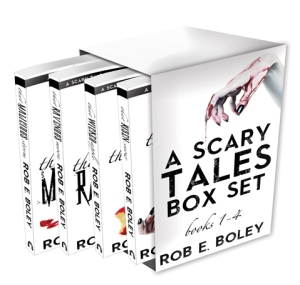Guest Post: Rob E Boley #WinterofZombie
2
Zombies: Rambling about Rules and Relevancy
By Rob E. Boley
Back in September, I had the pleasure of serving on The Zombie Apocalypse! panel at the Imaginarium writing con in Lousville, KY. The panel featured writers Jack Wallen, Armand Rosailia, and Peter Welmerink, and author Brent Abell participated from the audience. Needless to say, I was in good company!
Despite being held at 8:00 p.m. on Saturday evening, this panel ended up being the most well-attended and engaging panel that I participated in or attended all weekend. The audience was active, the panelists were witty, and the discussion was lively. One of the audience questions that resonated with me long after the event was something to the effect of, “Why are zombies still relevant?”
My co-panelists were quicker and wittier than me, so they immediately offered some snazzy answers, which I can’t recycle for you here because 1) I have a shitty memory; and 2) I was probably too busy trying to think of my own less quick and less witty answer. But a few minutes later in the panel—long after that question had been posed—I added something like: “If you look at the diversity of how this panel has used zombies, I think that speaks to the earlier question about how zombies can still be relevant. We’ve all used these monsters in very different ways.”
Okay, realistically what I probably said was, “Uh, well, if you look at the, uh, diversitiosity of how this panel has writed, er written zombies, I think goes back to the more early question about how, uh, zombies are relevant, um still. We’re all used these, uh, monster things in very very very differenter ways.”
I write better than I speak.
But it was a valid point, nonetheless.
Zombies can be a metaphor for AIDS, war, classism, consumerism, or pick-your-favorite-ism. Zombies can come in all sizes, sexes, and races. They can stagger. They can run. They can hiss or they can moan. They can run amok in smoldering urban landscapes or terrorize a fairy tale world. Zombies are versatile.
Fast forward a few weeks. I was trying to conjure up some ideas for this guest post, so I posted the following prompt on Twitter:
“So I need to write some zombie-themed guest blogs. Any suggestions? What would interest you? #zombies #horror”
I received this response from @ZotBakingCo:
“What are todays zombies rules for storytelling? Things have evolved so much.”
This great question speaks to the question from the panel about zombie’s relevancy. I think part of why zombies are still relevant is because—quite simply—they have no rules.
Unlike vampires, zombies have no weakness to sunlight or pointy sticks. Unlike werewolves, they have no aversion to silver. Nor do they rely on full moons or the safety of a coffin. Zombies can come from military experiments, random celestial activity, aliens, a virus, dark magic, or whatever you please. They can be scientific, biological, mystical, or just plain unexplained. Sure, if you opt for adrenaline-crazed virus zombies, some naysayers will tell you those aren’t real zombies. Whatevs. Tell them that real O.Z.’s (original zombies) were possessed by voodoo magic.
Zombies are universal.
Like a dark blue pair of jeans, they will never go out of style. Over the years, the zombie genre has seen many twists and turns. Whenever it gets a bit stale, a fresh perspective perks it up, be it the dark comedy of Return of the Living Dead, the adrenaline-fueled terror of 28 Days Later, the international politics of Max Brooks’ World War Z, the hilarious satire ofShaun of the Dead, or the tense interpersonal drama of Robert Kirkman’s The Walking Dead.
Zombies are the beta fish of the monster kingdom. They’re low maintenance, easy to care for, and vicious as all hell. More than that, they’re adaptable. Why? Because they’re so damn simple. Zombies aren’t scary because of what they’ve gained—they have no claws, mummy wraps, gills, fangs, or special powers—but because of what they’ve lost, be it their minds, their lives, and/or their free wills.
Zombies will continue to thrive in literature and other media, because on some level we all realize that each and every one of us has a hungry zombie waiting inside us.
And that’s a pretty damn scary notion.
About the Author:
Rob E. Boley grew up in Enon, Ohio, a little town with a big Indian mound. He later earned a B.A. and M.A. in English from Wright State University in Dayton, Ohio.
He’s the author of The Scary Tales series of dark fantasy novels featuring mash-ups of classic fairy tale characters and horror monsters. His fiction has appeared in several markets, including A cappella Zoo, Pseudopod, Clackamas Literary Review, and Best New Werewolf Tales. His stories have won Best in Show in the Sinclair Community College Creative Writing Contest and the Dayton Daily News/Antioch Writers’ Workshop Short Story Contest.
He lives with his daughter in Dayton, where he works for his alma mater. Each morning and most nights, he enjoys making blank pages darker. You can get to know him better by visiting his website at www.robboley.com.
Website: http://www.robboley.com
Twitter: http://twitter.com/robboley
Facebook: http://www.facebook.com/RobBoleyAuthor
Goodreads: https://www.goodreads.com/author/show/4097555.Rob_E_Boley
Twitter: http://twitter.com/robboley
Facebook: http://www.facebook.com/RobBoleyAuthor
Goodreads: https://www.goodreads.com/author/show/4097555.Rob_E_Boley
* * * * *
The stench of frozen flesh is in the air! Welcome to the Winter of Zombie Blog Tour 2015, with 40+ of the best zombie authors spreading the disease in the month of November.
Stop by the event page on Facebook so you don’t miss an interview, guest post or teaser…and pick up some great swag as well!
Giveaways galore from most of the authors as well as interaction with them!
#WinterofZombie is the hashtag for Twitter, too!

